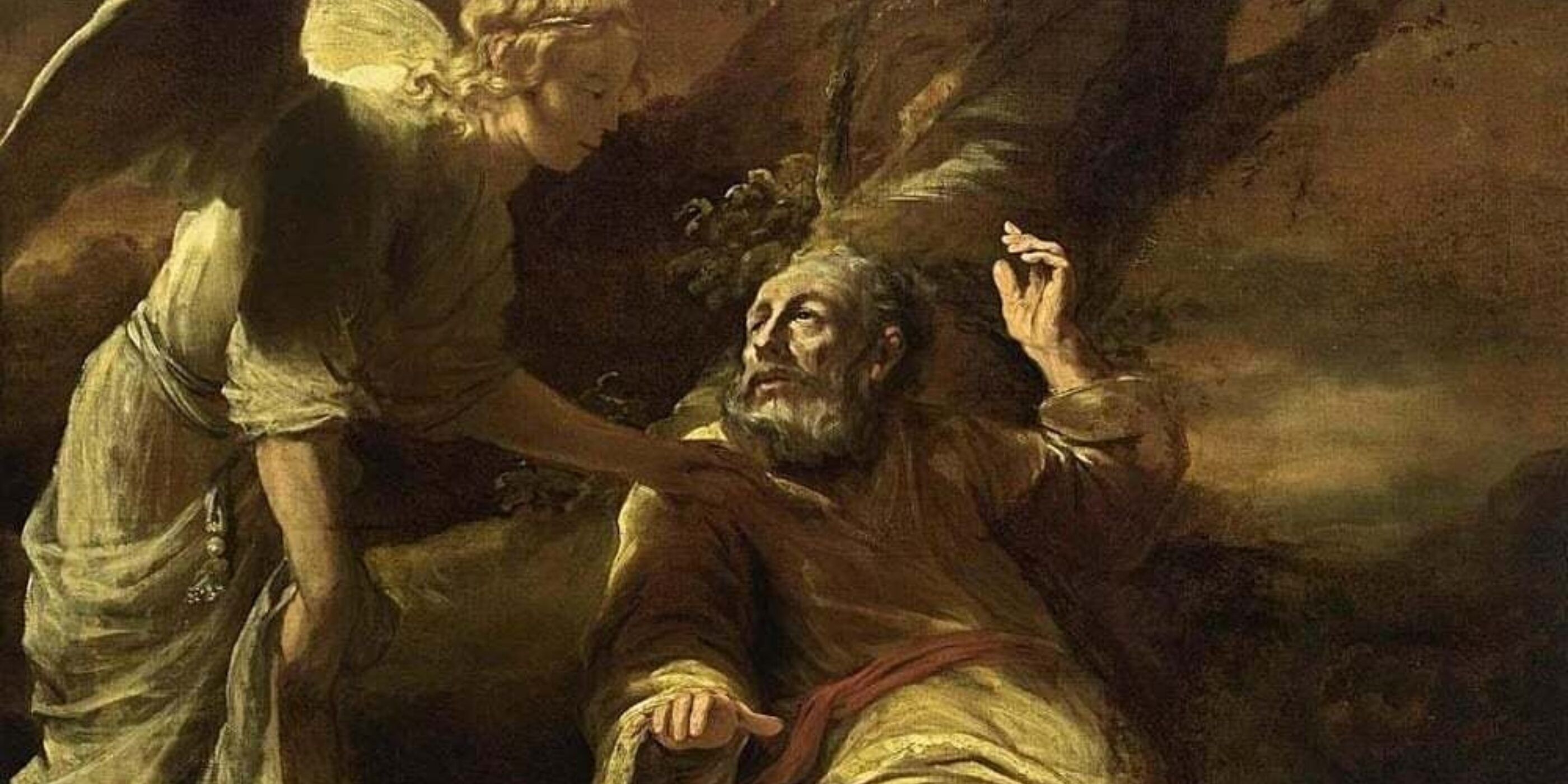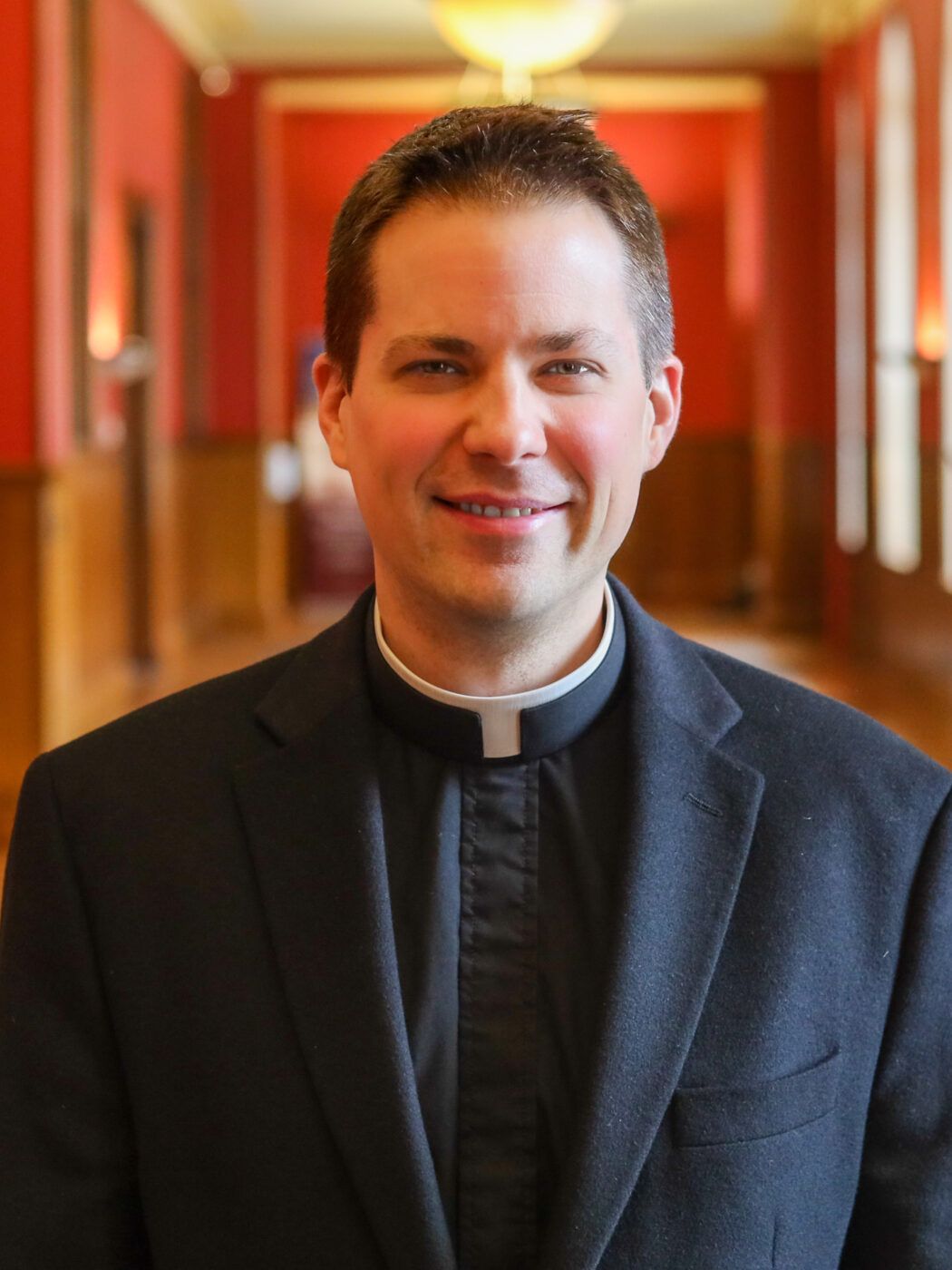"This is enough, O Lord!” cries the prophet Elijah in our first reading. “Take my life, for I am no better than my fathers." Fleeing from the wicked Queen Jezebel’s assassins, Elijah is on the run. Only days before he stood triumphant over the false prophets of Baal on Mt. Carmel. His life-long struggle to free Israel from the worship of false gods seemed at last to be won. But no, his victory is followed by even greater dangers and he is forced to flee, to run for his very life. Following the Lord has led him to the end of his strength. We find him at a seeming dead-end.
“This is enough, O Lord.”
How often have we felt this exhausted frustration? Even when we try to live for God, when we fight against sin for love of Him, we so often find ourselves worn out. Stretched too thin, overwhelmed by how much further we must go in our walk with the Lord, we can feel like the only thing to do is give up. “This is enough, O Lord.”
The 16th century Spanish mystic St. Theresa of Avilla, having hit the wall in her own struggle to restore integrity to her religious community, once prayed, “Lord, if this is how you treat your friends, it’s no wonder that you have so few of them!”
If there is one thing we can count on in the Christian life, it’s this: following God will lead us to the limits of our endurance. We will be stretched beyond the help of our natural talents. God will place before us challenges in which our native powers of determination, patience, and compassion will not be enough.
Why? Why does he do this? Why, to borrow St. Theresa’s phrase, does he treat His friends this way?
Put simply, it’s because He wants to be our strength. He wants to bring us to a joy that is greater than what we can dream and accomplish on our own. He wants us to live more fully than human fullness. It’s His divine strength and His divine joy that He desires to give us.
It’s one of the trademarks of our Lord to create new beginnings out of our dead-ends. On the other side of our exhaustion is His boundless power, a power and love that is waiting, waiting to be invited in. Foolish as we are, we tend not to ask for His help until we are in a rut, until our plans and our ways have failed. Then and only then do we break down and call to Him.
To climb the heights and to go the distance we are called to traverse in life requires trusting in a strength that is not ours, that we do not always feel, do not even always desire.
Elijah did not desire to go on. He wanted to die under that broom tree, fall asleep and never wake up again. “This is enough, O Lord!” As frustrated and fatigued as he was, however, He still turned to God. He brought his trouble to the Lord. We must never hesitate to do the same.

Prayer, even angry, frustrated prayer is pleasing to God.
The more we pour out our frustrations and anxieties to the Lord, the more He will pour out His peace and strength into the hearts that we have opened to Him.
The eternal Son of God became man so that we might have life and have it in abundance. “I am the living bread that came down from heaven;” the Lord declares in the Gospel. “Whoever eats this bread will live forever; and the bread that I will give is my flesh for the life of the world.” We receive His flesh, His life from the altar. On the altar He makes new beginnings out of our dead-ends. From the altar we receive the living bread come down from heaven. Through it we are given the strength to reach heaven.
“This is enough, O Lord,” cried Elijah at the end of His strength. With the bread of life, our cry of anguish, “This is enough, O Lord,” is transformed into a new kind of cry. It is instead a cry of praise and thanksgiving: “You are enough, O Lord.”


